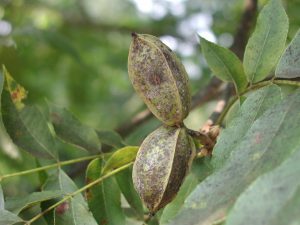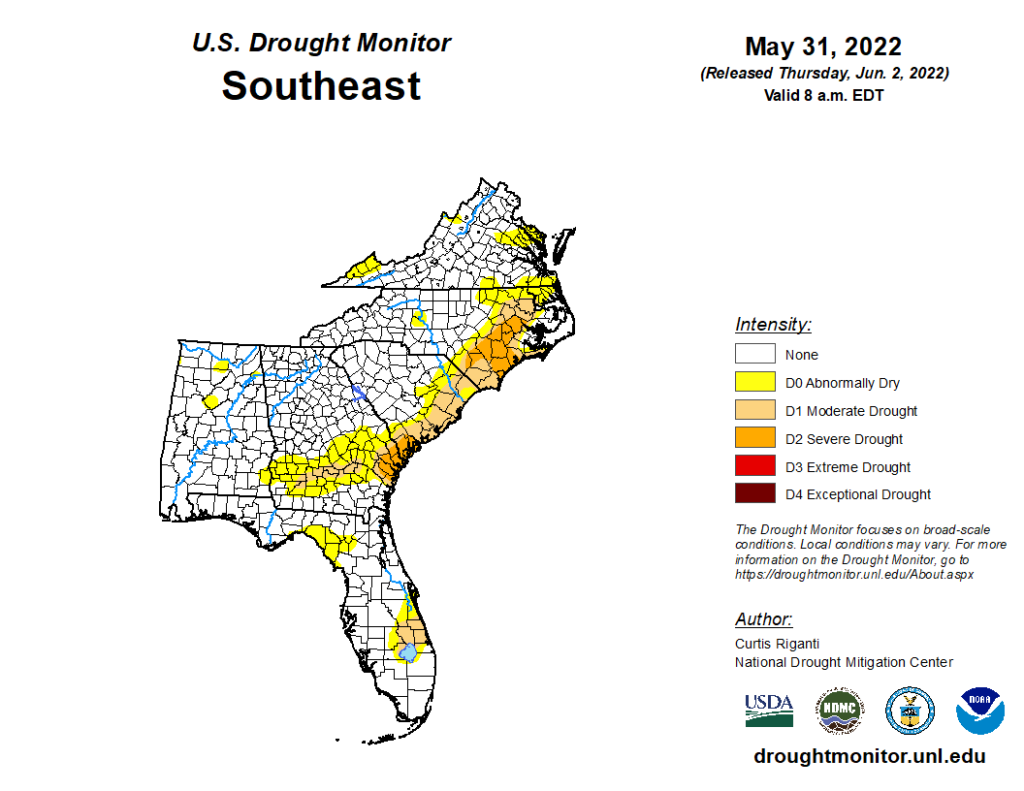By Clint Thompson
Hot and dry spring weather conditions in the Southeast meant minimal scab disease pressure for pecan producers. But growers need to be mindful of a potential disease surge if rain persists this summer in the region.

Lenny Wells, University of Georgia Extension pecan specialist, cautions producers about the potential impact that scab disease can have at this point in the growing season.

“We’re in really good shape at the moment. As rough as dry weather can be, it’s actually better for pecans to be a little dry as long as we’ve got irrigation. Because it has been so dry, we’re in really good shape from a disease standpoint right now,” Wells said. “There’s not a lot of scab (disease) out there. We’re about to enter a real critical period (though). We’re moving into the nut sizing stage, and that’s the stage that’s most critical to protect from scab. Even though we’ve been real dry, growers need to watch and be real careful and not get caught off guard if we do start seeing some showers here and there. This is the time that it really counts over the next couple of months.”
Scab is a fungal disease that infects the leaves or nuts of pecan trees. If it affects the nut early enough, scab can cause the pecan to blacken and fall from the tree. Some growers may spray between 10 and 12 times during an average year to fight scab, depending on how much it rains during the summer. Scab thrives on trees that have received moisture.
“Scab control during this time, it makes or breaks the whole crop. The weather plays a big role in that at this point,” Wells said.
Dry conditions continue to persist across the South Georgia region, according to the U.S. Drought Monitor. The dry weather ranges from abnormally dry to severely dry in certain areas. Sporadic areas in Alabama are abnormally dry as well.










